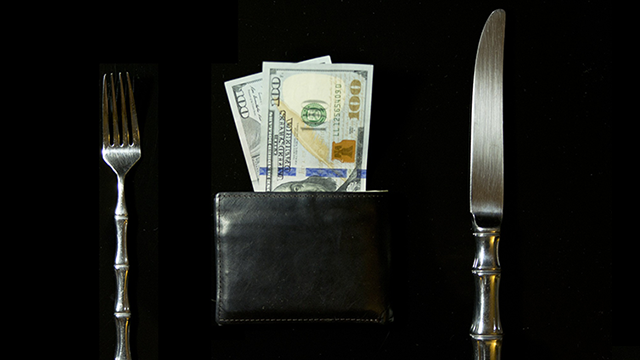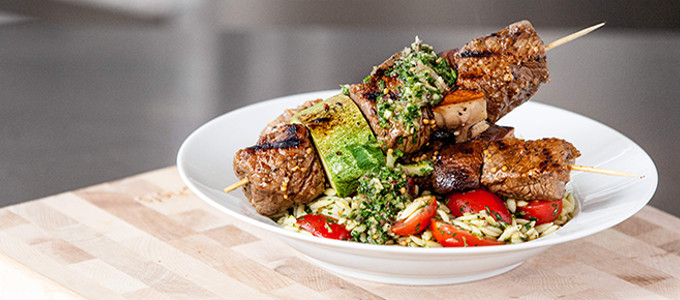Success rates skyrocket among pandemic-era dieters vying for huge cash rewards with HealthyWage, with many winning thousands for their pound shedding achievement
Let’s face it. It’s been one tough year with too many of us sitting idle and indulging in calorie-laden foods for way too long as the coronavirus pandemic continues to sweep the globe. For all too many, sheltering in place has prompted unwelcome weight gain—a troublesome truth as we head into the holiday season where gluttony oft reigns supreme.
That said, many individuals did have foresight and motivation back in March and the months that followed, wisely leveraging that extreme downtime to “diet for dollars” with HealthyWage—a pioneer of money-driven weight loss contests and challenges for individuals, teams and business groups. In fact, those who started a 6-month HealthyWager challenge during the pandemic (late March through May) broke company records, spurring a dramatic increase in pound shedding success rates—and in-kind cash payouts—against the norm. So motivated became America to drop, or avoid, the so-called ‘quarantine 15’ and score some cold hard cash in the process, HealthyWage reports that this past May it logged a substantial year-over-year increase in challenge participants at large. This is not surprising given Google search trends indicates the portion of people searching for weight loss hit a 5-year high in May of 2020—a level even exceeding the quintessential New Year’s diet resolution season.
Two Participants Lose 71 lbs. Each, Winning Cash Prizes
Beyond the fact that people who started weight loss wagers during the pandemic achieved much greater success as compared to participant results the prior year, and earning hundreds and even thousands of dollars for their efforts, it is women and individuals under 30 years of age primarily accounting for the sustained increases. For example, among the litany of pandemic era success stories, Lisa S. won over $1,900 for losing 50 pounds in 6 months while Hayden T. won over $1,200 for losing over 62 pounds in 6 months—both during the COVID-19 pandemic.
As the coronavirus rages on well into the fourth quarter, we collectively find ourselves again having to shelter-in-place. Those trying to reconcile how they will survive this next round of being home bound, and the holiday season at large, with mitigated waistline and budgetary wreckage—and who are even planning their New Year resolution approach just beyond—would be wise to consider the gamified dieting approach. “Loss Aversion is a powerful dynamic and the reality of having ‘skin in the game’ can propel the results of a gamified weight loss initiative,” notes HealthyWage co-founder David Roddenberry.
The efficacy of diet gamification is well-proven. For one, according to study findings published by JAMA Internal Medicine, behavioral economics-based gamification led to “significantly” increased physical activity among overweight and obese Americans. In this particular study, pairing a step tracking device with social incentives led to sustained, long-term behavior change—prompting participants to take more steps then with a step tracking device, alone. While the report explains that “gamification interventions significantly increased physical activity during the 24-week intervention,” with competition being the “most effective.”
That’s something HealthyWage has seen play out since launching its weight-loss gamification platform in 2009. HealthyWage is, in fact, founded on earlier substantive research and “double-incentivization” methodology that proves competition and rewards—especially the cash variety—can as much as triple the effectiveness of weight loss programs.
“A key element for the success of a gamification program is giving participants something to lose if they fail to meet their goal—whether tangible or intangible,” notes Roddenberry. “In this particular study, it was just points at stake but even this effected behavior change. There are actually throngs of studies demonstrated that the threat of losing something of value is much more effective than the opportunity to win something of equal value. That’s precisely why we advocate that program participants ‘pay to play’ and make an investment out of their own pocket in order to win rewards—in our case large cash prizes—for losing weight and getting more active in the program.”
Read Also: Flavorman Creates a Drink to Represent 2020 – Food & Beverage
A few other notable HealthyWager success stories (both female and male) are case-in-point. These include Jean N. who lost 71 lbs. and won $3,357.99 for her efforts, and Jeremy M. who also lost 71 lbs. and won $1,886.32 for his own slimdown success. From its website, HealthyWage.com shares yet more inspirational success stories of both women and men who gained financially for their pound-shedding achievements using the company’s unique gamification approach. This includes Kristin W. who lost a staggering 114 pounds and won $4,000 for her efforts, Anastasia W. who lost 41 pounds and won a whopping $10,000 in kind, and Blake S. who lost an impressive 151 pounds and won $4,670 for his own slimdown success. Figures that are tasty, indeed.
These and other such HealthyWage payouts are proof positive. For their weight-loss achievements that collectively exceeds an astounding 1,050,000 pounds for this year, alone—269 of which losing in excess of 100 pounds (and nearly 7.5 million pounds lost since the company’s launch), HealthyWage has reportedly paid more than xx30,000 dieters over $13 million cash in 2020, specifically, and over $55 million cash since its inception in 2009.
HealthyWage programs apply these principles:
- HealthyWager Challenge: participants commit to a weight loss goal and an upfront financial payment and get their money back plus a financial return if they accomplish their weight loss goal. The average participant loses 40.7 pounds and gets paid $1,245.
- HealthyWage Step Challenge: participants commit money and agree to increase their steps by 25% over 60-days. If they achieve their goal they get their money back plus the money from those who don’t hit their goal.
Upholding the new findings while also further validating HealthyWage’s well-honed approach, an additional study published in the journal Social Science and Medicine continue to prove that money is an effective motivator to “increase both the magnitude and duration of weight loss.” The same hold true in business for staff wellness initiatives. Results from one study published in the Annals of Internal Medicine indicated that “Loss Incentive’ Motivates Employees to Take More Steps,” finding that financial incentives framed as a loss were most effective for achieving physical activity goals.
As a prolific corporate and group wellness purveyor, since 2009 HealthyWage has worked with an array of hi-caliber participants on workplace and staff wellness initiatives, including Halliburton, ConocoPhillips and more than 25% of the largest school districts in the country. HealthyWage has, in fact, formally created competitive, money-motivated programs for more than 1000 Fortune 500 and other public and private companies, hospitals, health systems, insurers, school systems, municipal governments and other organizations throughout the U.S., and their program has been more informally run at more than 7,000 companies and organizations seeking to bolster staff health and well-being, and boost bottom lines in kind.
“Throngs of studies reiterate the importance of the ‘stick’ in the design of a wellness incentive program, whether for individuals at home or for employee groups,” Roddenberry says. “Many studies have demonstrated that the threat of losing something of value is much more effective than the opportunity to win something of equal value. That’s precisely why we advocate that program participants ‘pay to play’ and make an investment out of their own pocket in order to win rewards—in our case large cash prizes—for losing weight and getting more active in the program.”
Studies do consistently show that monetary incentives serve to enhance the effectiveness of, and duly complement, weight-loss programs of any and all sorts, especially when paid out quickly like HealthyWage’s various programs. For its part, HealthyWage reports that the average participant more than doubles their investment if they are successful at achieving their goal. The financial upside potential is impressive.
So, if this is the season when you would like to not only resolve to lose those extra lbs. but also actually achieve that worthy goal, consider a cash-fueled approach. It just might give you that extra dose of motivation that’ll truly help you stay the course, shed weight and make some extra money in the process. There’s no better time than right now to bank on yourself.
~~~
Forbes Business Council Member Merilee Kern, MBA is an internationally-regarded brand analyst, strategist and futurist who reports on noteworthy industry change makers, movers, shakers and innovators across all categories, both B2C and B2B. This includes field experts and thought leaders, brands, products, services, destinations and events. Merilee is Founder, Executive Editor and Producer of “The Luxe List” as well as Host of the nationally-syndicated “Savvy Living” TV show. As a prolific consumer and business trends, lifestyle and leisure industry voice of authority and tastemaker, she keeps her finger on the pulse of the marketplace in search of new and innovative must-haves and exemplary experiences at all price points, from the affordable to the extreme. Her work reaches multi-millions worldwide via broadcast TV (her own shows and copious others on which she appears) as well as a myriad of print and online publications. Connect with her at www.TheLuxeList.com and www.SavvyLiving.tv / Instagram www.Instagram.com/LuxeListReports / Twitter www.Twitter.com/LuxeListReports / Facebook www.Facebook.com/LuxeListReports / LinkedIN www.LinkedIn.com/in/MerileeKern.
Some or all of the accommodations(s), experience(s), item(s) and/or service(s) detailed above may have been provided or arranged at no cost to accommodate if this is review editorial, but all opinions expressed are entirely those of Merilee Kern and have not been influenced in any way.
Sources:
https://trends.google.com/trends/explore?date=today%205-y&geo=US&q=weight%20loss
http://chibe.upenn.edu/about/news/2016/02/16/loss-incentive-motivates-employees-to-take-more-steps







